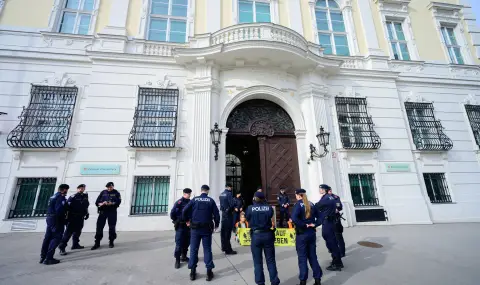< p>An Austrian court has decided to release a former Austrian secret agent arrested at the end of March on suspicion of spying for Russia - a case that has caused unrest in the Alpine country, notes France Press, quoted by BTA.
The Court of Appeal in Vienna ruled on Egisto Ott's appeal and "ordered his release" on the grounds that "there is no danger" him to commit new crimes, a statement said.
According to the indictment cited by AFP, the former employee of the Directorate of National Security and Intelligence, "systematically" and "consciously" violated the law by conducting searches without hierarchical authorization, primarily to the detriment of Austria's interests.
In addition, he is suspected of acting on behalf of the Russian security services (FSS) and the world-famous Austrian Jan Marsalek, who is behind the bankruptcy of the Bavarian payment company Wirecard. Marsalek has remained untraceable since he fled in 2020 and is believed to be in Moscow under a false identity, according to international media investigations.
Removed from office in 2017 and briefly arrested in 2021, Egisto Ott was re-arrested on March 29 after new information emerged in the investigation. According to these reports, he handed over to Russia (for a fee) the smartphone data of three senior Interior Ministry officials. A laptop containing confidential documents was also handed over to Moscow.
As part of his research, Ott collected data on an FSS agent who had defected and on Bulgarian investigative journalist Hristo Grozev, a longtime critic of the Kremlin. After his arrest, conservative Chancellor Karl Nehammer warned against the "infiltration of Russian networks" and called for improved security.
There is ample evidence that in the central European country, a center of East-West exchanges during the Cold War, people close to the far-right Freedom Party still infiltrate the internal affairs of the state.
During its rule between 2017 and 2019, this formation, long associated with Russia under a formal cooperation agreement, had taken control of the strategic interior ministry. Subsequently, a number of Western countries limited the exchange of information with Austria, fearing that it would be shared with Moscow, AFP recalls.
